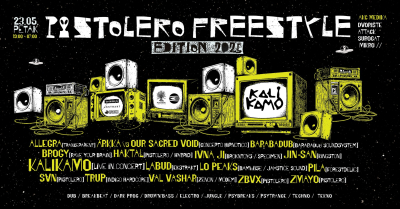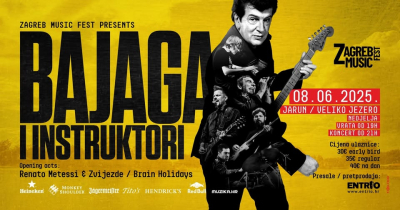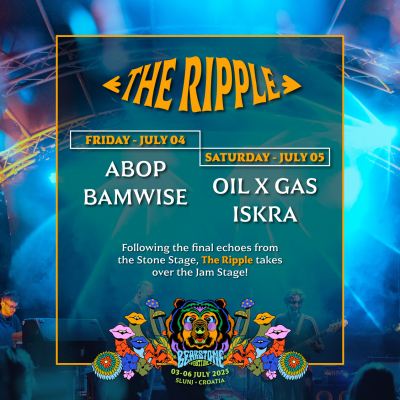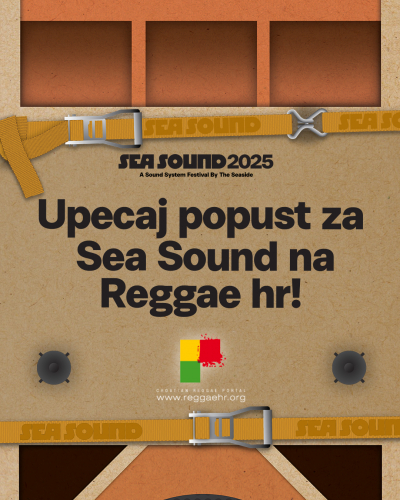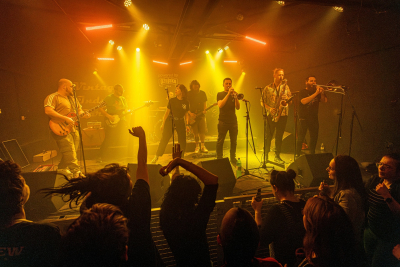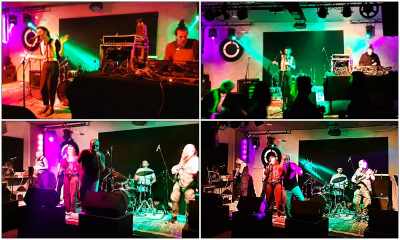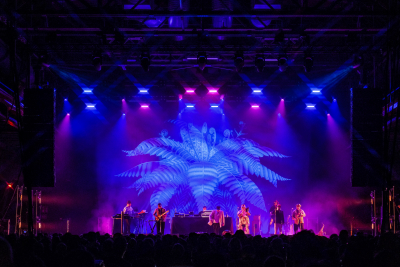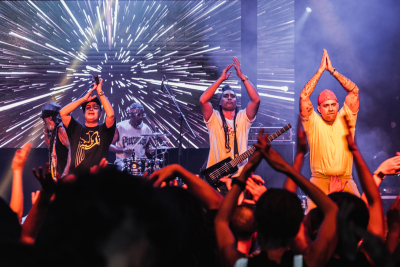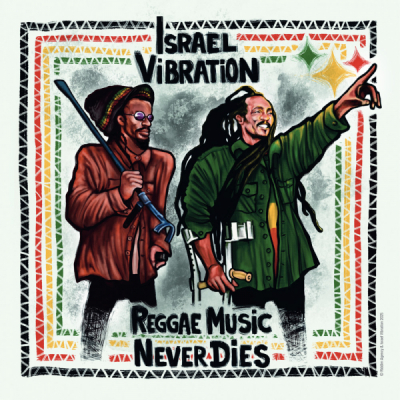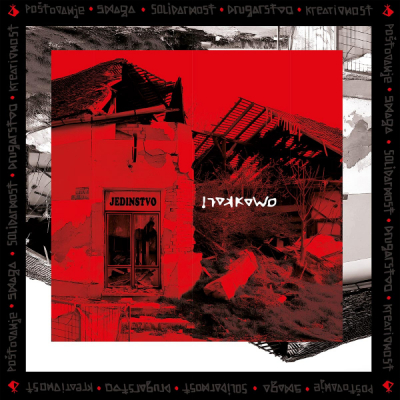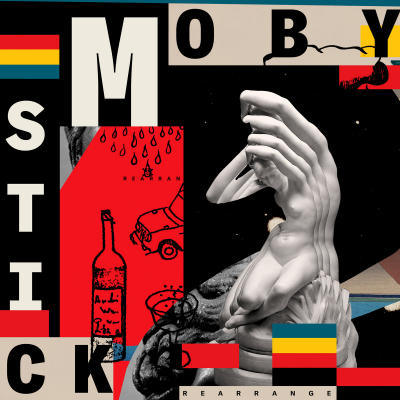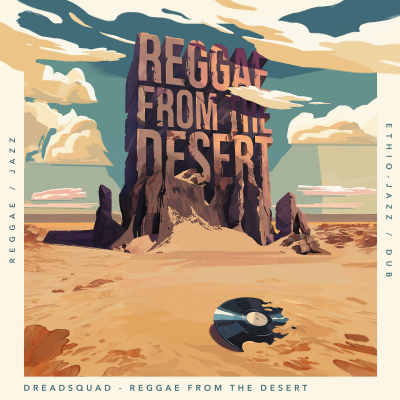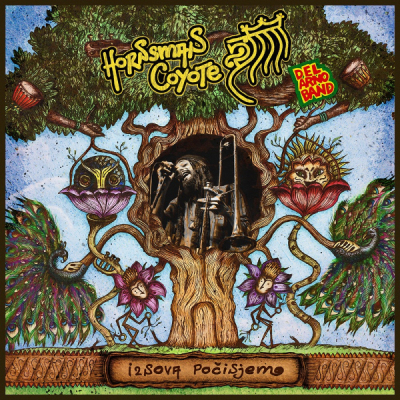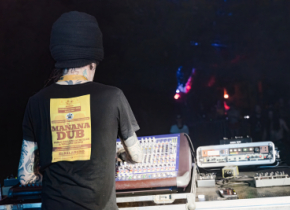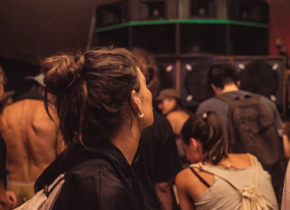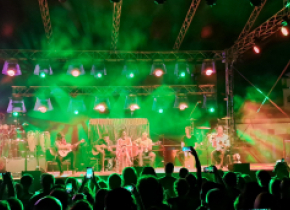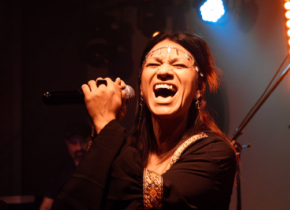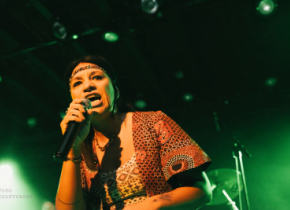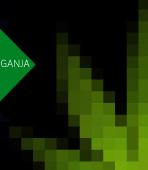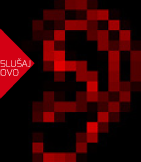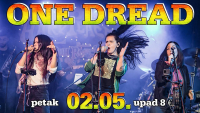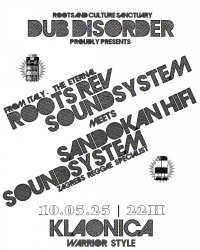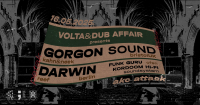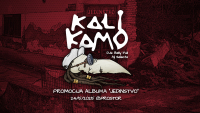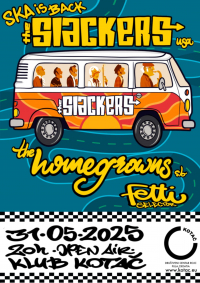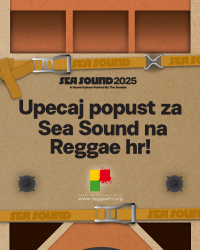On the eve of the release of the new album "One Rock" by the American roots band Groundantion, we talked with its founder Harrison Stafford about the beginnings of Groundation, changes within the band, and what it was like to record with reggae legends Israel Vibration, The Abyssinians and The Congos. Enjoy this good conversation...
Reggae hr: You come from a musical family, you have been professionally surrounded by music since you were a child. What inspired you to combine reggae and jazz music?
Harrison Stafford (Groundation): Well just that...Jazz music was the first music I ever heard. Through my grandfather who played saxophone and my father who played piano I was exposed to artists such as Duke Ellington, Dave Brubeck, Thelonius Monk, and John Coltrane and this gave me a deep love for improvised music, long solos, non-diatonic harmony, and poly-rhythmic compositions. Then being exposed to roots reggae music from my older brother around the age of 9 I became obsessed with musicians like Bob Marley, Peter Tosh, Bunny Wailer, Culture, and I instantly connected with the strong lyrics and hypnotic pulse of the music. A few years later I began studying music and playing guitar and really thinking about songs, chords, and lyrics. From the beginning of my musical journey I understood that I was a singer and songwriter and that I had something I needed say. It occurred to me that both reggae music and jazz were revolutionary art forms that were pushing the boundaries of music and not creating music for the money but instead creating something that will inspire and last for generations; this was the path I wanted to follow.
So then as a kid I had my father's old stereo in my room and it could play LPs at the same time as a cassette tape and on a few occasions while listening to some reggae music on the cassette the needle would drop on my turn table and suddenly Monk would be soloing with the Wailers and it blew my mind. Among the many musical epiphanies it was the space in the one-drop rhythm that could shift ones perspective on the downbeat that really expanded my concepts. Years later in my own songwriting elements of this began to emerge. The lush jazz harmony, long impovised solos, and poly-rhythmical complex arrangements inspired me; I was in search of a new music that could carry the sophistication of all these jazz elements combined with the raw groove and spiritual messages of reggae...and so Groundation.
Reggae hr: Groundation has survived many member changes over the years. How tired is it, and how inspiring is the constant changes of members?
Harrison Stafford (Groundation): I feel that with every change comes new positive energy into the group that lifts the band up. It's an energy thing, and once everyone is not together, when the vibe collectively is not right, then change must come, and it is always for the better. I am more inspired today than ever before, for the future of GROUNDATION.
Reggae hr: At the very beginning of Groundation, were you surprised by the successes of the first albums Young Tree and Each One Teach One?
Harrison Stafford (Groundation): It wasn't an instant success, but yes the positive reaction from fans and lovers of the genre gave me the energy needed to press on. The production of the albums grew immensely from Young Tree, which cost like $2,000 USD, then on to Each One Teach One that was a much bigger budget. In reality I was surprised then and I’m still surprised with the successes because I know the music is very challenging and not so "commercially friendly."
Reggae hr: Are you still insisting on analog live album recording?
Harrison Stafford (Groundation): Yes to this day, One Rock album was recorded on the 2" analog tape. "Live" in a sense that the drums, bass, and keyboards are captured in one take from beginning to end with no "copy and pasting" or moving of the parts. And because we are on the tape every track must be performed from beginning to end perfectly, or with imperfections you live with because of the overall performance. In addition we record without any click track; it's just a group of humans playing music together.
Reggae hr: What was it like recording the release (The next generation, 2018) with the whole big band jazz band? How did the members of the orchestra accept reggae music?
Harrison Stafford (Groundation): Ahh you're speaking about the song "Vanity" which opens the album...the entire jazz big band did not record the song all together at once. In the album's planning stages it became apparent that having all 12 horn players together performing at the same time would make it nearly imposable to get clean takes. It’s a challenge to hear all 12 notes clear enough to insure the composition would be recorded correctly and if one person made a mistake the wrong note would bleed onto other tracks and would not be able to fix. So to ensure perfect execution the song was recorded with a few horn players layering parts.
Reggae hr: A whole generation of reggae musicians with whom we grew up is slowly dying out. How can the younger generation contribute to the conservation of tradition by adapting to the times in which we live?
Harrison Stafford (Groundation): I would say honor the music of the forefathers. Invite those great elders to guest on your songs. Also musically stick to the real acoustic instruments and spend the time to learn those instruments to the best of your ability. In order to become a reggae musician you need to really go deep into the one-drop; This is the quintessential sound of the genre and needs to be preserved and maintained. Even when using the modern tools of computer generated riddims, click-tracks, and auto-tuning, don't forget that the genre of reggae, because of men like Bob Marley and Peter Tosh, the lyrics are meant for something...something positive and militant. So don't leave reality and challenges, but face these facts and use the music to uplift people in their time of need.
Reggae hr: What prompted you to invite Israel Vibration, The Abyssinians and The Congos to collaborate on new material?
Harrison Stafford (Groundation): A dream...the album was delayed indefinitely due to COVID-19…While over this time so many of the legends were moving on to Zion. A great sadness took hold of me for months and I had no inspiration for music. Then suddenly the thought came that I needed to record these elders while they’re with us. So the album became a way to cement these icons on record in 2022. First we had the song idea for "Original Riddim" and who better to sing this song with GROUNDATION than Israel Vibration and The Abyssinians; two of the greatest vocal groups in Jamaican history. For another song idea we had this groove we were working on that would become the title track "One Rock". One day my wife said to me "what? You're gonna record Israel Vibration and The Abyssinians and you're not going to record the Congos?" I said “No, no…I’m gonna record the Congos!" (The thought did not occur to me until just then) I went into my studio and started to right "One rock, a dat we dep on, just remember it's our father's home!" and I instantly heard Cedric, Ashanti Roy, and Watty chanting.
Reggae hr: The new album One Rock will be released on May 13, are there any more musical surprises?
Harrison Stafford (Groundation): Yes, this album is full of musical surprises...one of my childhood friends Roger Hall who does all the music video production and has been listening to the album for months told me "it's your Pet Sounds" hahaha! Between the guest vocal features of Israel Vibration, The Abyssinians, and The Congos you have 8 singers. Then there's Isaiah our bassie, Alreca and Brady and myself...that's 12 lead vocalists featured throughout the 9 songs! For the first time ever we have two songs "Greed" and "Human Race" that feature an actual classical string trio (2 violins and 1 viola). I am very proud of this album for many reasons not least is that each songs explores new rhythmic and harmonic worlds GROUNDATION had never ventured through. Also I am very fond of the lyrics on this album, each song has its statement and clear message that seems to pass to the next song in a beautiful way. For a taste of the record’s musical surprises I would recommend probably the most adventurous songs on the album "Absolutely Clear".
[croatian] Harrison Stafford (Groundation): "Danas sam inspiriran više nego ikada prije"



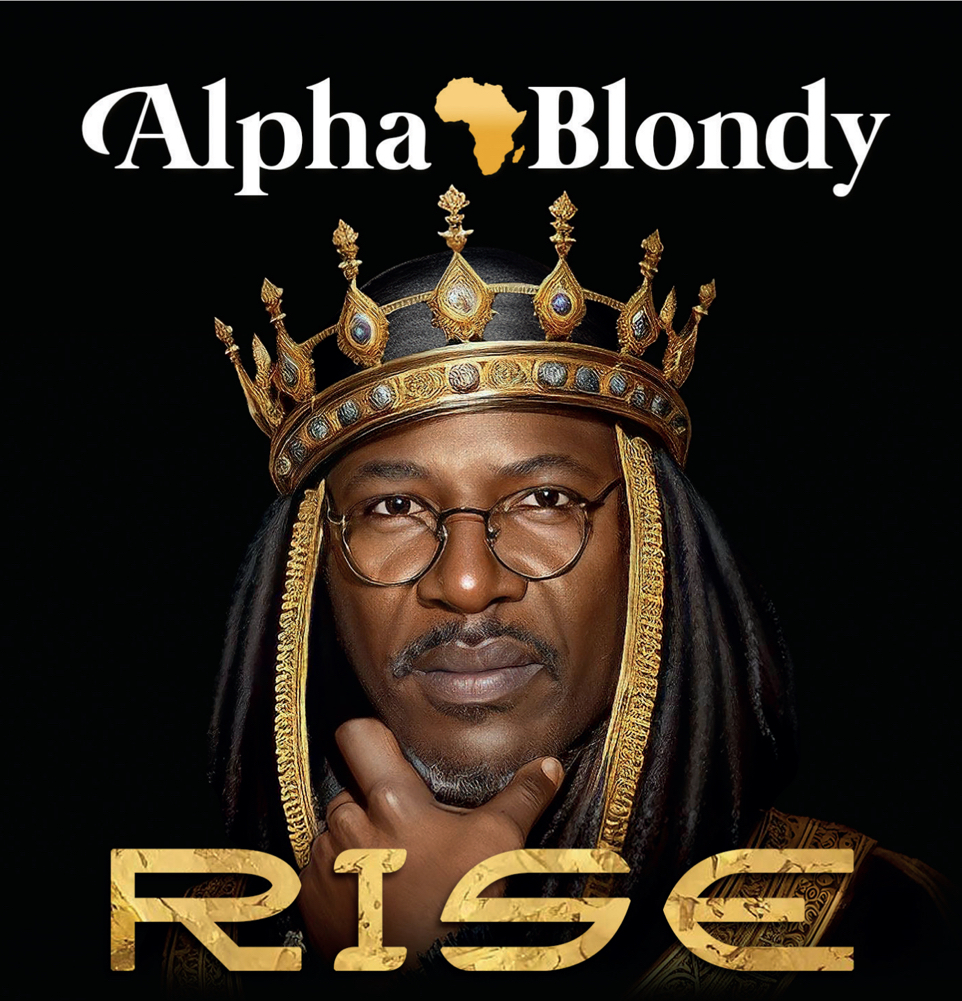
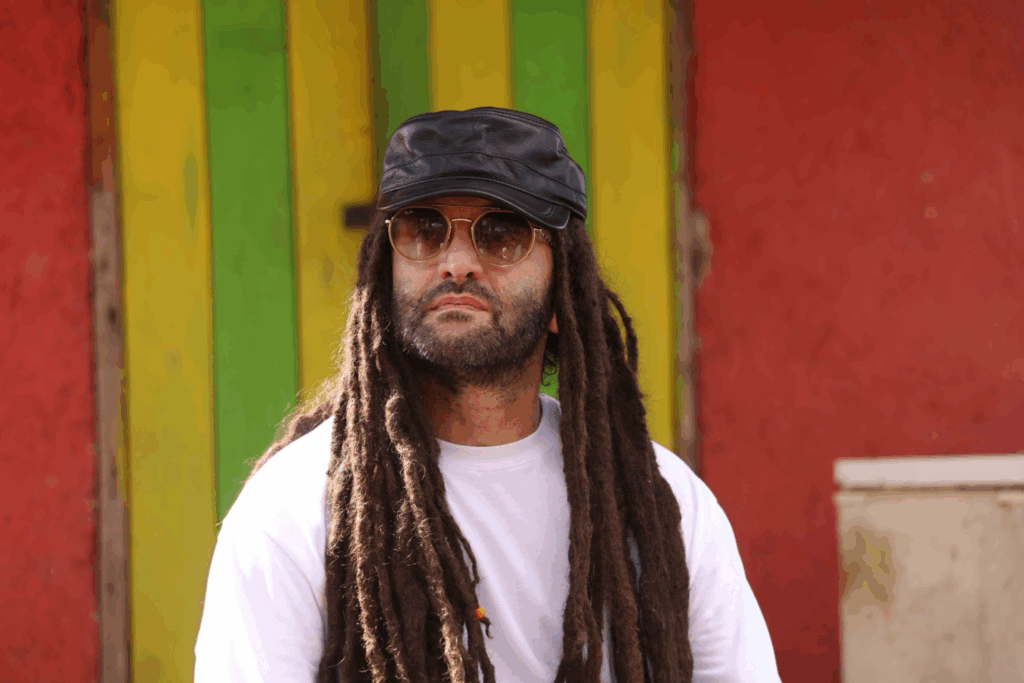
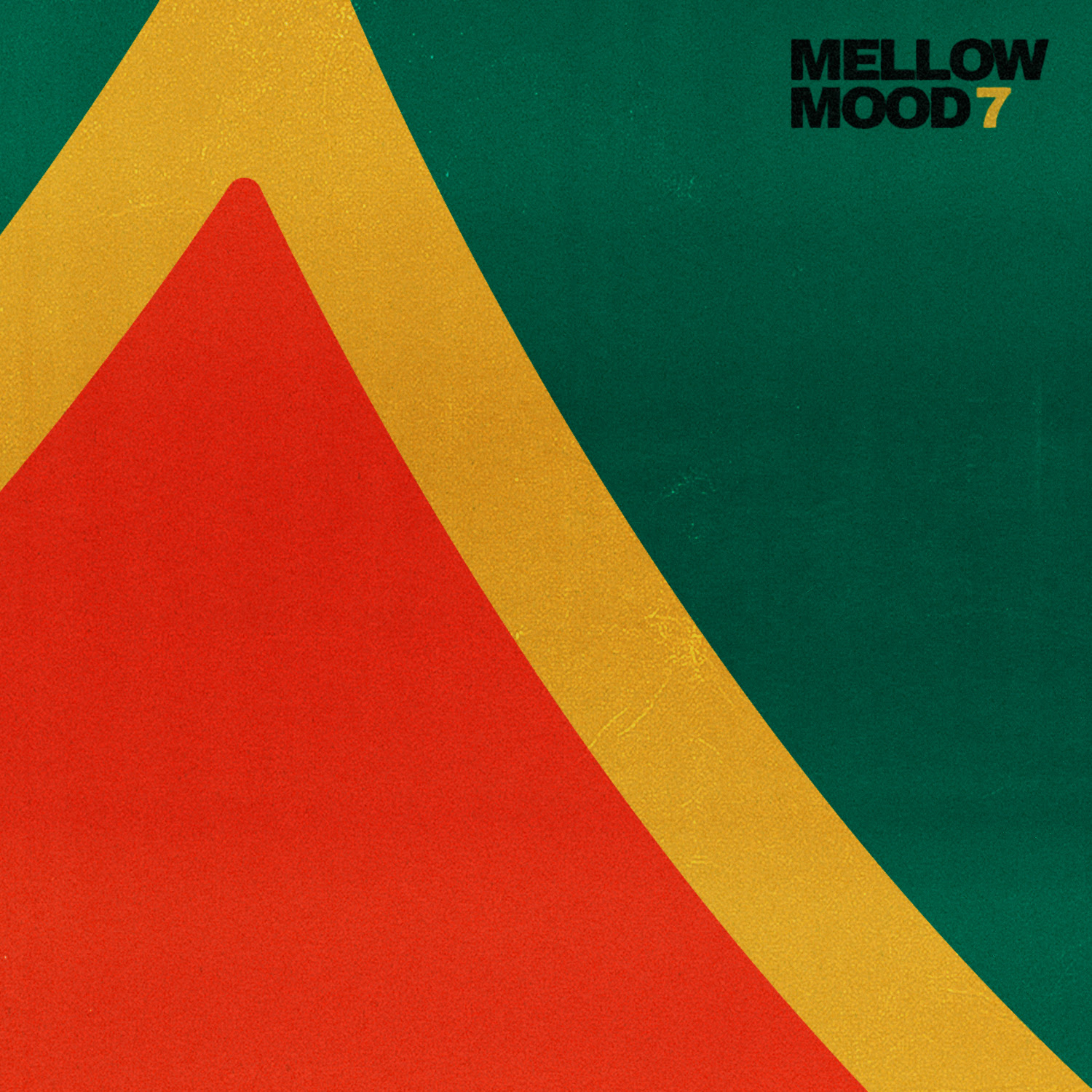
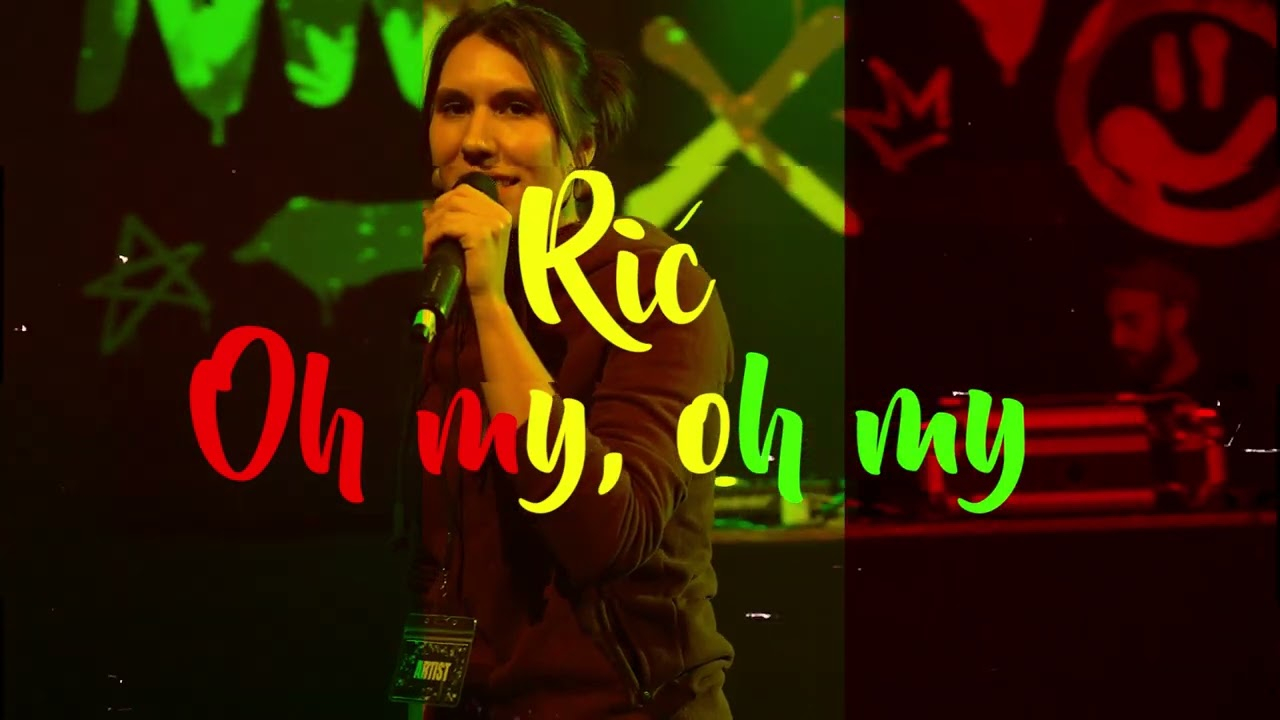
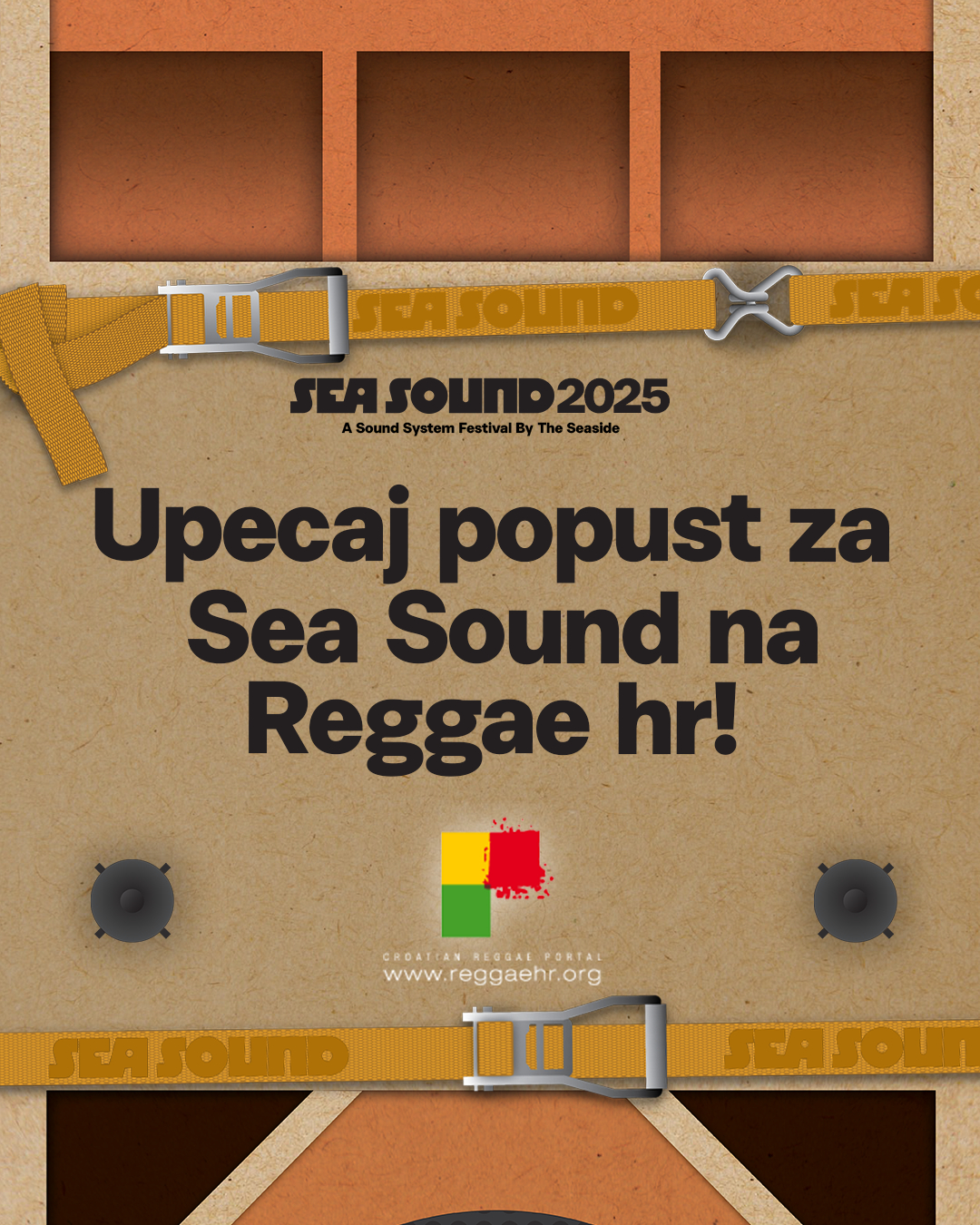
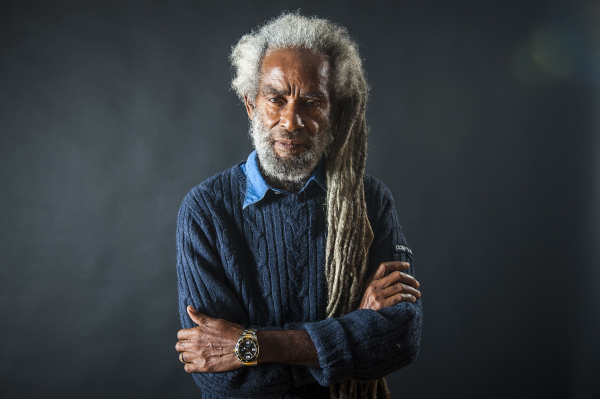


![[english] Harrison Stafford (Groundation): "I am more inspired today than ever before"](/media/k2/items/cache/01003af4915f419f8636e970671db533_L.jpg)
